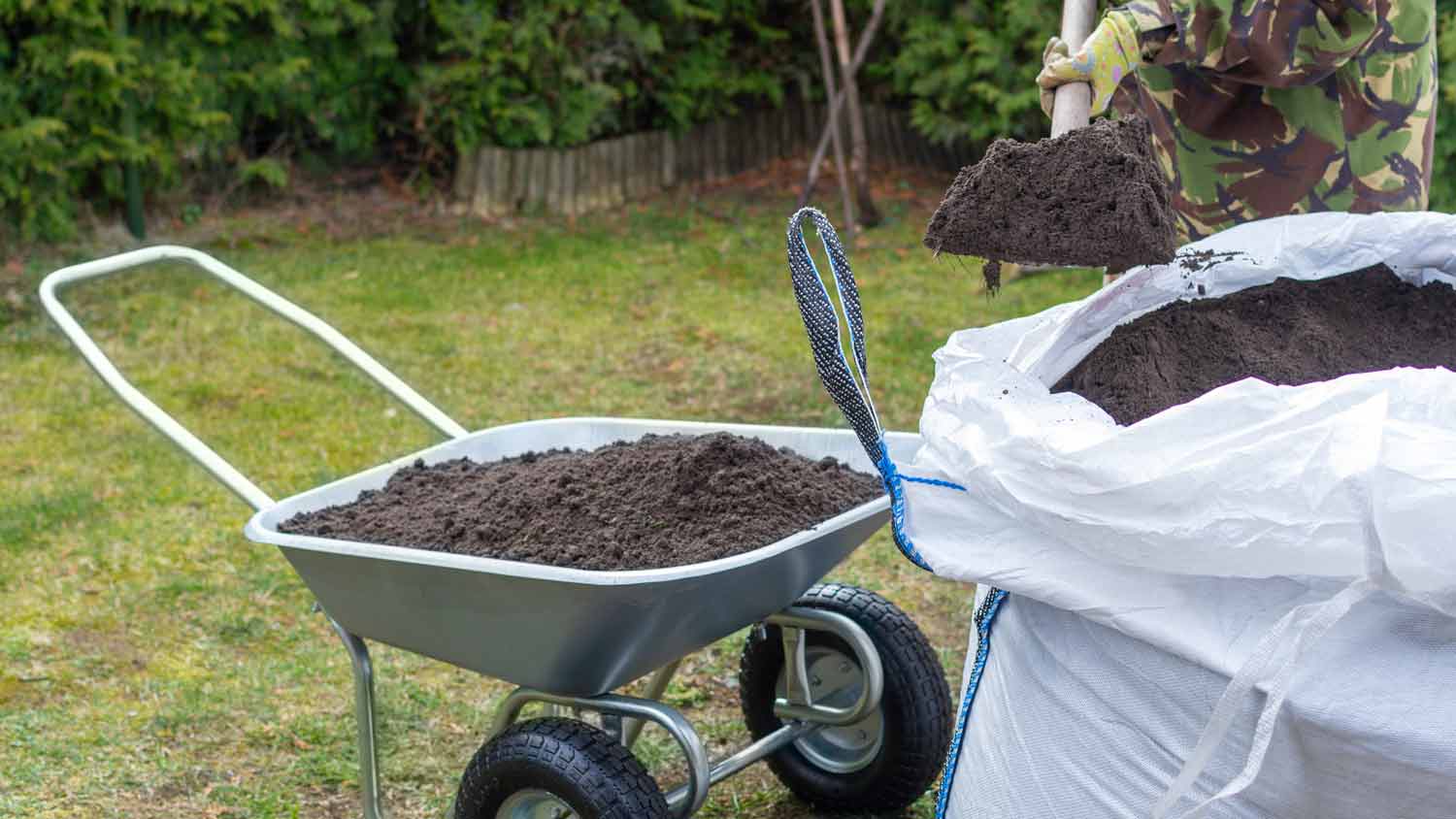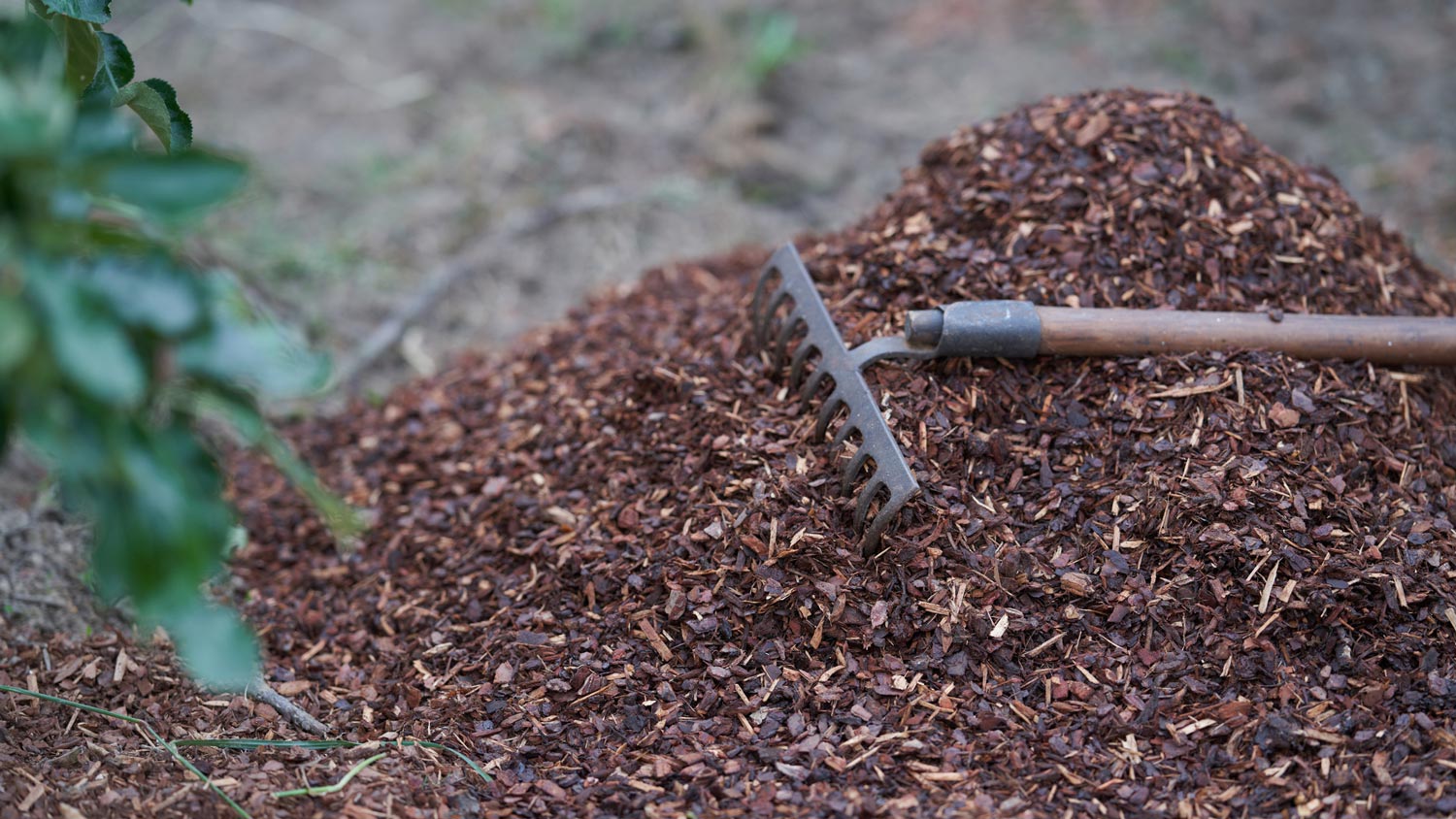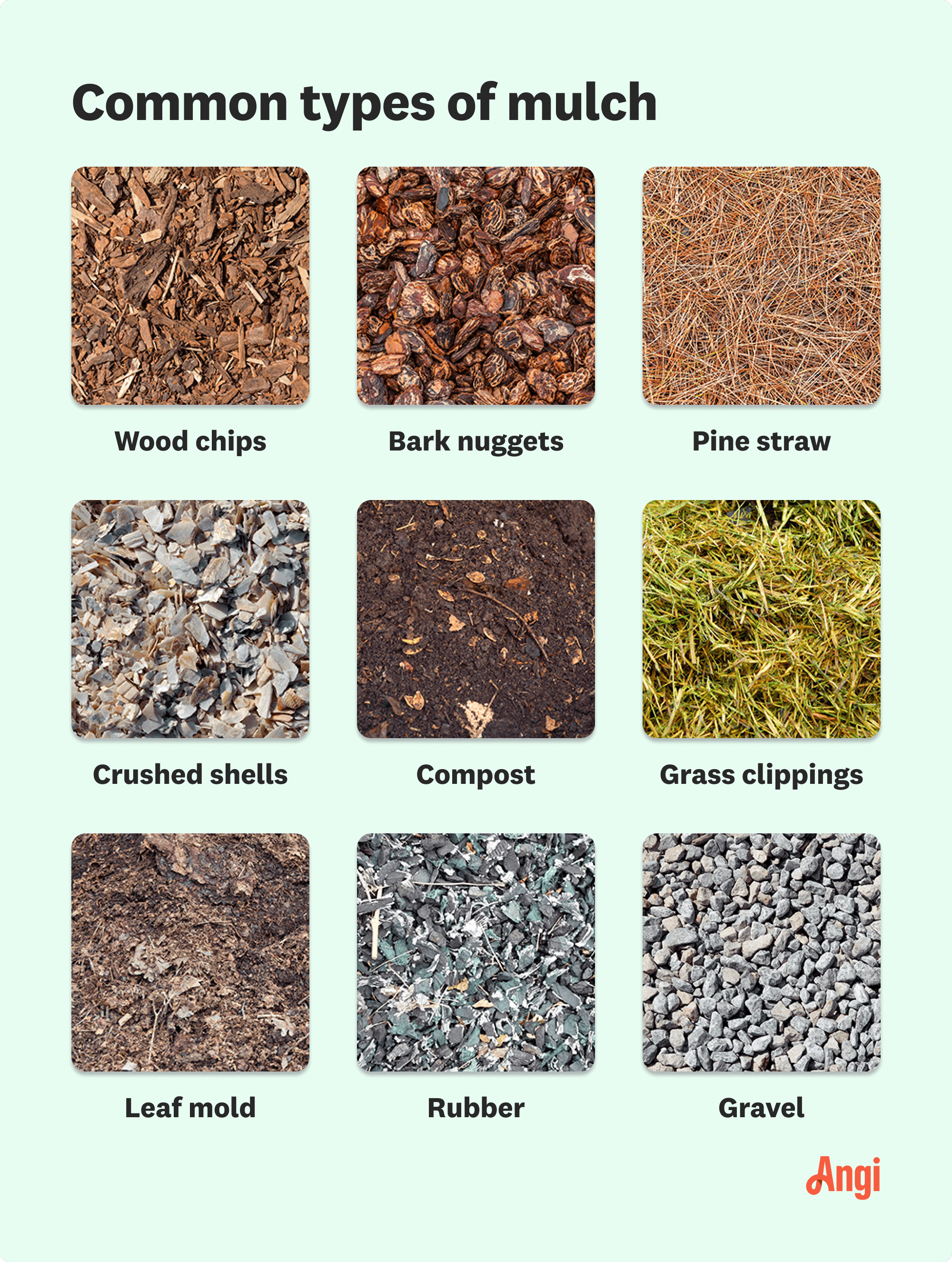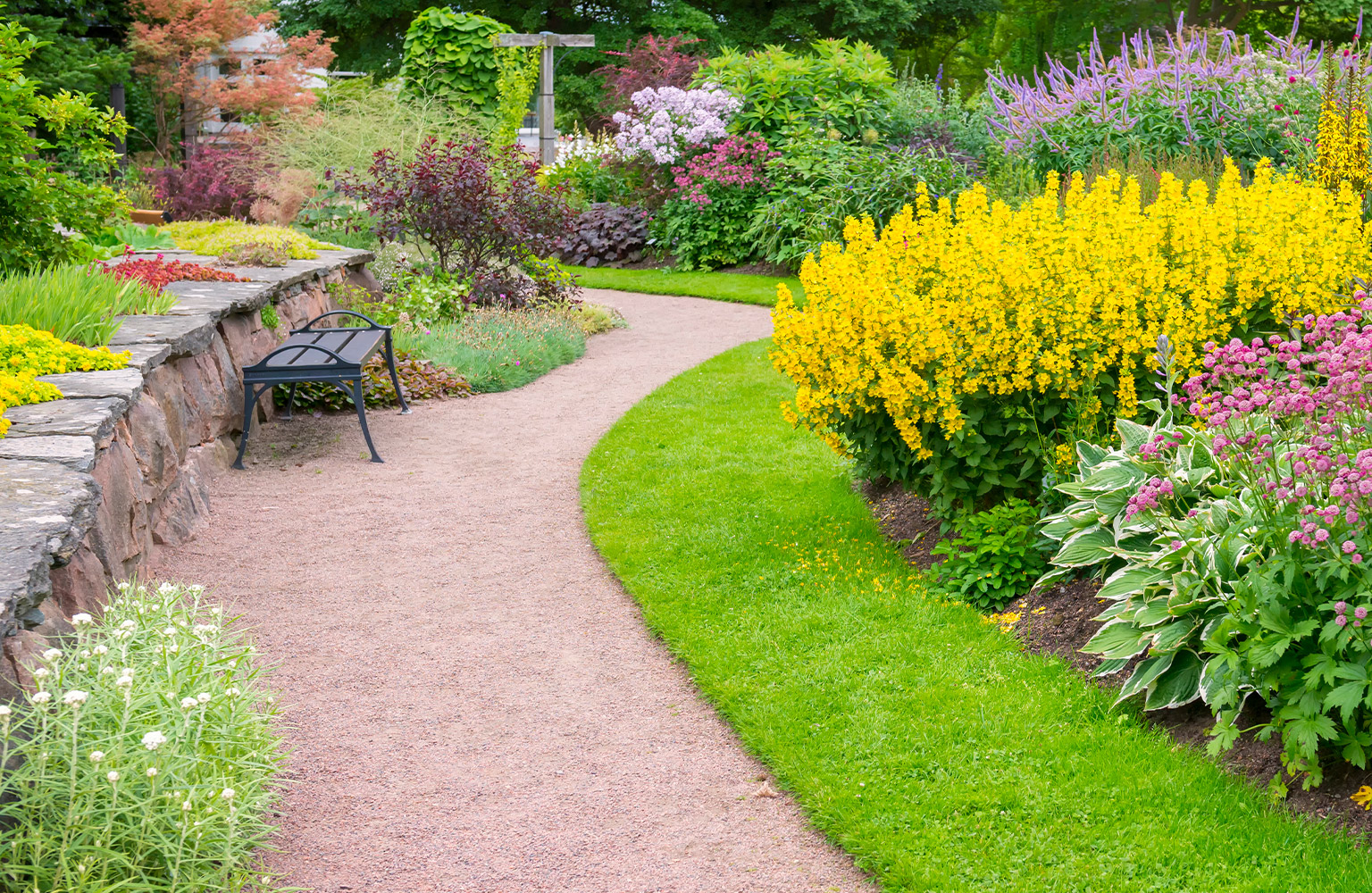
Get clear, up-to-date fill dirt cost info. Learn average prices, cost factors, and tips to save on your next fill dirt project.
Keep your yard healthy with these pro mulching tips


Mulching is a great way to build healthy soil and keep your plants in tip-top condition. Applying mulch helps control weeds, reduce evaporation and conserve moisture, add organic matter and valuable nutrients to the soil, and more. Read our eight expert mulching tips to learn how to do it right to avoid accidentally hurting your plants.
You need to apply a layer between 2 and 3 inches thick. Any less than this, and there really isn't enough mulch for it to be effective. More than this, you encourage your plants to grow shallow root systems, making them weaker and needier in terms of food and water. You can calculate how much mulch to use by multiplying the square footage of the area by the depth and dividing that by 324.
Too much mulch can hinder plant growth as it blocks the nutrients, sunlight, and water it needs to grow. One to four inches of mulch is your average mulch depth for most plants.
One of the primary uses for mulch is to conserve water, so, to make sure your mulch is the most effective, water and, if necessary, fertilize before you lay the mulch. This way, it immediately starts to protect the soil from evaporation.
Many people make the mistake of applying loads of mulch to trees, but they pack it in mounds centered around the trunk. Instead, use the general rule of a single 2- to 3-inch thick layer and spread it loosely in a circle, extending roughly as far out as the tree canopy. You can use the same method for mulching large shrubs.
If you’re unsure of how much mulch to use around trees and shrubs and how to shape it, hire a local mulching company to scope out the project and make recommendations for your landscaping.
A simple home soil test costs as little as $15. At its most basic, this type of test can tell you your soil’s pH, while other, more comprehensive kits can give you insight into your soil's nutrition profile and composition. With insight into whether you have neutral, acidic, or alkaline soil, you can work out what type of mulch to use or not to use and what, if any, amendments you'd like to make.
Similarly, if your soil lacks nitrogen, you can choose a mulch, horse manure, or mix in some feather meal, bone meal, or horn and hoof meal. If potassium is the key ingredient you're missing, adding home compost primarily made from food waste is an excellent way of replenishing potassium. You can also supplement your chosen mulch with wood ash or kelp meal.
If it's phosphorus you're lacking or if your soil is just in pretty poor shape all-round, farmyard manure is the best type of natural mulch, and once well-rotted and applied to your yard, it doesn't smell bad, either.
A soil test can tell you specific nutrients your soil needs in order to grow plants and grass. For example, a clay or marshy soil could mean your plants take longer take root and grow, which is important information to have when starting your project.

Some people choose to only mulch once a year, but you'll have better results and healthier soil and plants if you do it twice per year. Apply your first layer of mulch in spring after the ground thaws. Then, apply a second layer around or just after the ground freezes in late fall. This second application protects any plants still alive or going into dormancy. It also helps insulate plants and soil, keeping ground temperatures a crucial few degrees higher.
After removing it from the storage pile and spreading it into a thinner layer in your garden, your new mulch will start to cool down, and microorganisms will die off. You’ll need to water it to prevent fungi from developing and creating a water-repelling surface. Watering new mulch will also help it settle over the soil.
Not all mulch is made equal, and some varieties are easier to work with than others. To save your sanity and reduce labor, use woody and other harder mulches only in areas where you don't dig too much and where you don't want to have to reapply it too frequently. This is a good choice for ornamental perennial beds and around mature trees and shrubs.
However, in the flower beds you dig over and plant every year, or in the veggie garden, you'll be better off with a mulch that's easier to dig in and faster to break down. Straw mulch, manure, and green manure are all excellent mulch types for these locations.

When mulching trees and shrubs or any plant with woody stems, give the base a little room. Avoid putting the mulch right against the plants or trees. If you do, the mulch can easily burn the trunks and stems, causing lasting damage. Additionally, because mulch holds moisture, it can quickly cause rot and mold to set in, killing your trees. Instead, leave a 3- to 6-inch gap around the tree's base and the beginning of your mulch layer.
From average costs to expert advice, get all the answers you need to get your job done.

Get clear, up-to-date fill dirt cost info. Learn average prices, cost factors, and tips to save on your next fill dirt project.

Discover the average sand delivery cost, key price factors, and tips to save on your next project. Get transparent, up-to-date estimates for sand delivery.

Gravel is an inexpensive paving material overall, but costs vary by type. Find out what average gravel prices will look like for your project.

Different types of mulch have different uses in your landscaping. Learn which mulch types are best to use on your property.

From wood chips to grass clippings, we like to throw around the word mulch. But what is mulch, and how do you use it properly? Let's break it down.

Organic mulch improves soil quality, holds in moisture, and helps plants thrive, but how does it work? Learn how mulch can improve your yard.